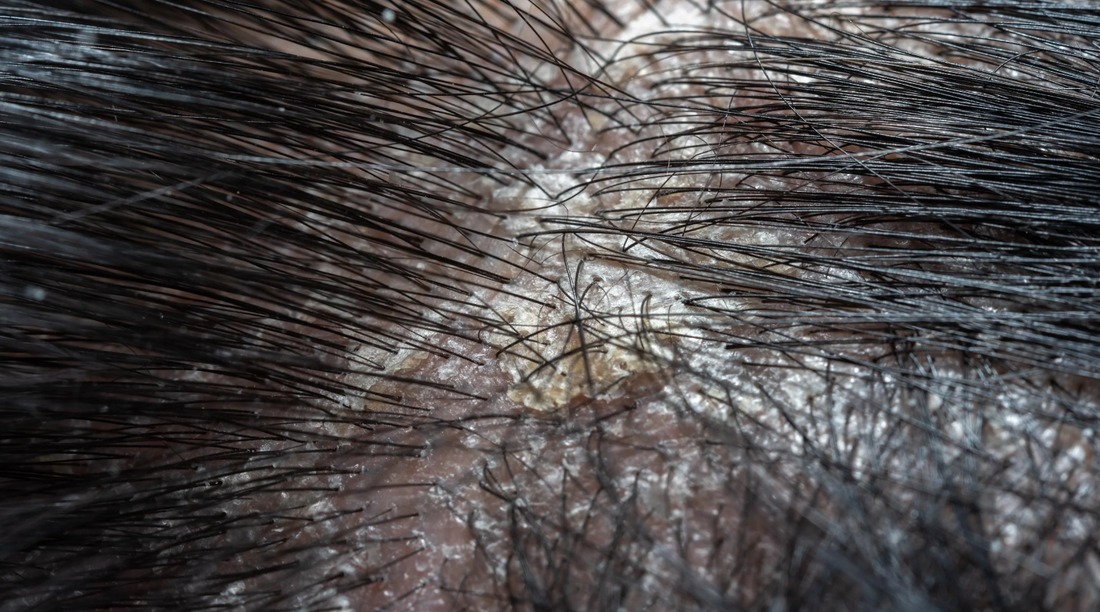When it comes to scalp health, the symptoms can often be misleading. It's common for individuals to confuse a dry scalp with inflammatory scalp conditions, as they can share similar signs such as itching, flaking, and irritation. However, understanding the distinctions between these issues is crucial for effective treatment and relief. Let's dive into the differences between a dry scalp and inflammatory scalp conditions, and how to identify and treat each.
What is a Dry Scalp?
A dry scalp occurs when the skin on your scalp lacks moisture. This condition can lead to itching, irritation, and flaky skin, much like dandruff. However, the flakes associated with a dry scalp are usually smaller and less oily than those caused by other scalp conditions. Dry scalp is often a result of factors such as cold weather, heated indoor environments, and harsh hair care products.
Key Characteristics of Dry Scalp:
- Small, dry flakes
- Itchy scalp
- Tightness and irritation due to lack of moisture
Inflammatory Scalp Conditions
Inflammatory scalp conditions, such as seborrheic dermatitis, psoriasis, and eczema, are characterized by an inflammatory response of the skin on the scalp. Unlike a simple dry scalp, these conditions can cause more intense itching, redness, and larger, oilier flakes. They may stem from an overreaction of the immune system, yeast overgrowth, or genetic factors.
Common Inflammatory Scalp Conditions:
- Seborrheic Dermatitis: Marked by red, greasy skin covered with flaky white or yellow scales.
- Scalp Psoriasis: Presents as red, raised, scaly patches that may spread beyond the scalp.
- Eczema (Atopic Dermatitis): Characterized by itchy, inflamed skin that can become cracked and rough.
Distinguishing Between the Two
Appearance and Symptoms: The type and appearance of flakes can be a telling sign. Dry scalp typically involves smaller, non-oily flakes, whereas inflammatory conditions produce larger, oily, or yellowish flakes.
Underlying Causes: While a dry scalp is usually due to environmental factors and product use, inflammatory conditions have deeper biological causes, including immune system activity and genetic predisposition.
Treatment Approaches: For a dry scalp, moisturizing treatments and gentle hair care products can restore scalp moisture. Inflammatory conditions, however, often require medicated shampoos, topical treatments like our Pre-Exfoliating Scalp Treatment, and sometimes prescription medications to control.
Managing Your Scalp Health
For Dry Scalp:
- Use gentle, hydrating shampoos and conditioners.
- Limit the use of heat styling tools and harsh chemicals.
- Consider using a humidifier in dry environments.
For Inflammatory Conditions:
- Opt for medicated shampoos containing ingredients like ketoconazole, salicylic acid, or coal tar. Our 2-n-1 Soothing Scalp Cleanser is perfect for this.
- Apply topical treatments as recommended by a healthcare provider.
- Manage stress and dietary triggers that may exacerbate symptoms.
Conclusion
While dry scalp and inflammatory scalp conditions share common symptoms, their causes, and treatments differ significantly. Identifying the correct condition is essential for taking appropriate action and finding relief. If you're unsure about your symptoms or if over-the-counter treatments aren't helping, it's important to consult with a dermatologist or trichologist. They can provide a definitive diagnosis and tailor a treatment plan to your specific needs, helping you achieve a healthier, more comfortable scalp.


